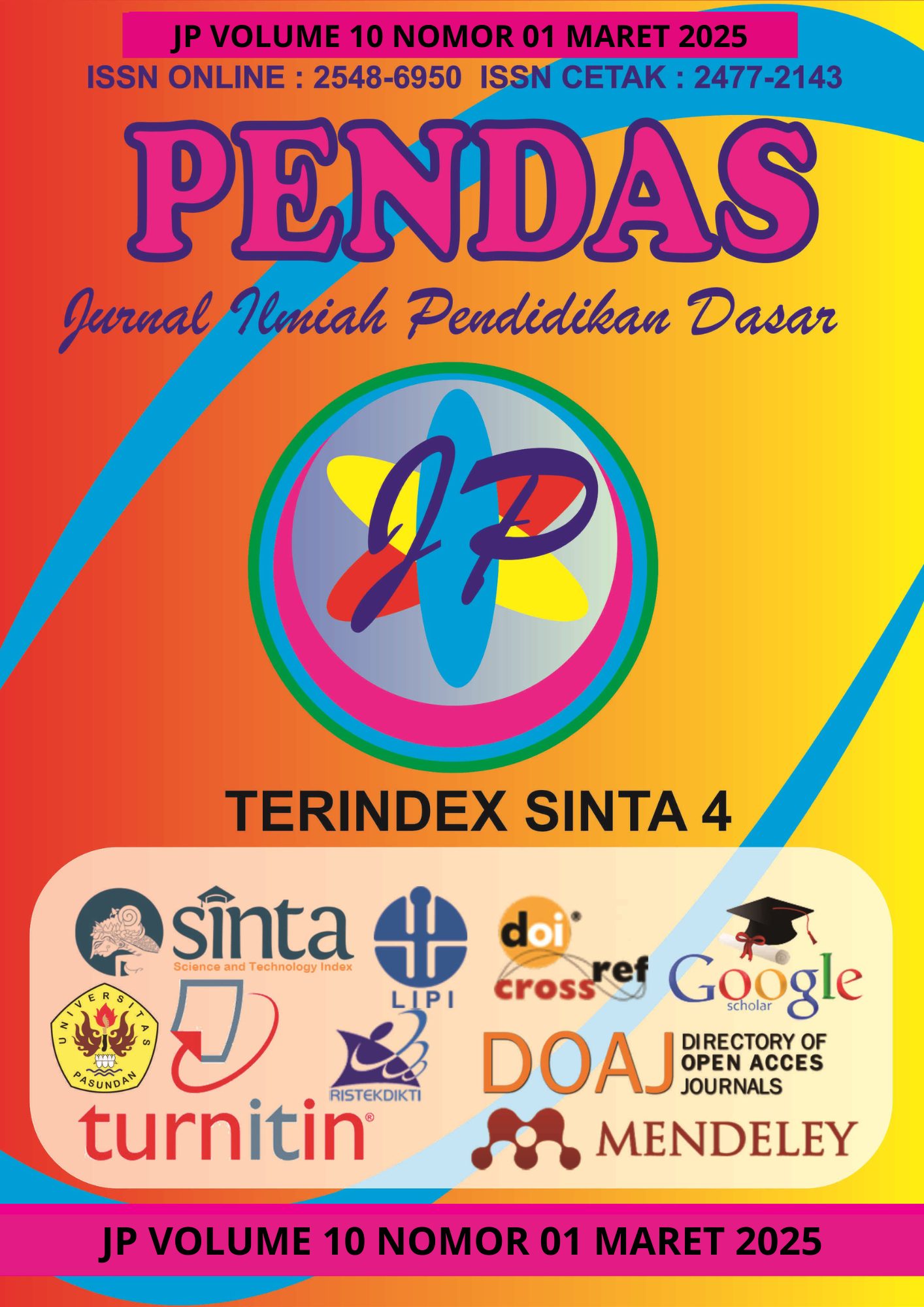TANTANGAN RENCANA PENDIDIKAN DI ERA DISRUPSI
DOI:
https://doi.org/10.23969/jp.v10i01.20616Keywords:
educational planning, technological disruption, 21st-century skillsAbstract
As times progress, technology continues to bring changes to life, particularly in the field of education, which will constantly evolve. Educational planning in the era of disruption faces significant challenges due to the rapid and dynamic advancement of technology. Disruption, marked by digital technological progress, global economic changes, and shifts in labor market demands, has fundamentally altered the educational landscape. The main challenges in educational planning include adapting curricula to be relevant to the needs of Industry 4.0, improving digital literacy, and developing critical and creative thinking skills. Additionally, ensuring the sustainability of the education system in responding to rapid changes is a challenge, especially regarding the gap in access to technology across different regions. On the other hand, educational planning must also consider the challenges related to the changing learning behaviors of students, who are increasingly dependent on technology, as well as the importance of strengthening the role of educators in facing these changes. Therefore, educational planning in the era of disruption requires an adaptive, innovative, and future-oriented approach to ensure that the education system remains relevant and inclusive in addressing global challenges.
Downloads
References
Aoun, J. E. (2017). Robot-Proof: Higher Education in the Age of Artificial Intelligence. MIT Press.
Australian Government, Department of Education, Skills and Employment. (2021). National Teacher Workforce Action Plan.
Barber, M., Donnelly, K., & Rizvi, S. (2012). An avalanche is coming: Higher education and the revolution ahead. London: Institute for Public Policy Research.
Christensen, C. M., Horn, M. B., & Johnson, C. W. (2011). Disrupting Class: How Disruptive Innovation Will Change the Way the World Learns. McGraw-Hill.
Darling-Hammond, L., et al. (2020). Preparing Teachers for a Changing World: What Teachers Should Learn and Be Able to Do. Jossey-Bass.
Euler, D. (2019). Dual Education in Germany: Lessons for Vocational Education in Other Countries. Springer.
Finnish Ministry of Education and Culture. (2021). Digital Literacy and Skills: Finland’s Approach to 21st-Century Education. Finnish Ministry of Education and Culture.
Fullan, M., & Langworthy, M. (2014). A Rich Seam: How New Pedagogies Find Deep Learning. Pearson.
Hargreaves, A., & Fullan, M. (2012). Professional Capital: Transforming Teaching in Every School. Teachers College Press.
Harvard Graduate School of Education. (2022). Early Childhood Development and Education in Rural Kenya.
Kemendikbud. (2021). Merdeka Belajar: Inovasi Pendidikan Berbasis Keterampilan.
Muralidharan, K., & Singh, A. (2021). Right to Education Act and its Impact on Inclusive Education in India. India Education Journal.
OECD. (2020). World Class: How to Build a 21st-Century School System. OECD Publishing.
Reimers, F. M., & Schleicher, A. (2020). Schooling Disrupted, Schooling Rethought: How the COVID-19 Pandemic is Changing Education. OECD.
Schleicher, A. (2018). World Class: How to Build a 21st-Century School System. OECD Publishing.
Schleicher, A. (2021). Education for a Changing World: Flexible and Adaptive Education Policies. OECD Publishing.
Sturgis, C., & Patrick, S. (2020). When Success Is the Only Option: Designing Competency-Based Pathways for Next Generation Learning. International Association for K-12 Online Learning.
Tilbury, D. (2020). Green Changemakers: Educating for a Sustainable Future. UNESCO.
UNESCO. (2019). Education for All: Global Monitoring Report. UNESCO Publications.
UNESCO. (2020). Right to Education in the COVID-19 Era: A Global Perspective. UNESCO Publications.
UNESCO. (2021). Digital Education Transformation in Developing Nations. UNESCO Publications.
UNICEF. (2020). Education During COVID-19: Response, Recovery, and Resilience. UNICEF.
UNICEF. (2021). Inclusive Education: Policy and Practice in Developing Countries. UNICEF.
World Bank. (2020). Investing in Digital Education Infrastructure for Developing Countries. World Bank.
World Economic Forum. (2020). SkillsFuture and the Future of Work in Singapore. World Economic Forum.
Downloads
Published
Issue
Section
License
Copyright (c) 2025 Pendas : Jurnal Ilmiah Pendidikan Dasar

This work is licensed under a Creative Commons Attribution 4.0 International License.














































